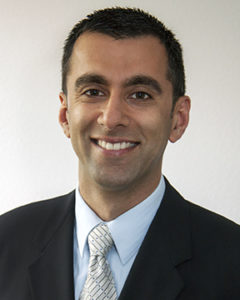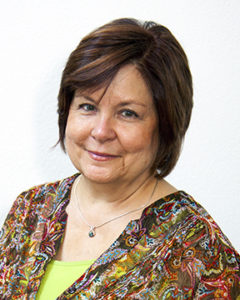Posted 4:05 p.m. Thursday, Feb. 22, 2018

UWL sees rise in sexual misconduct reports, encourages culture of speaking out and changing norms.
UWL sees rise in sexual misconduct reports, encourages culture of speaking out and changing norms
The #MeToo Movement and a subsequent outpouring of national stories about sexual assault and harassment has drawn attention to what’s happening at home. UW-La Crosse is seeing a rise in students reporting and reaching out about cases of sexual misconduct. That’s a good thing, says Nizam Arain, UWL Title IX Coordinator and director of Equity & Affirmative Action. [caption id="attachment_51208" align="alignright" width="240"] Nizam Arain[/caption]
“If we are getting more reports, it means more people are identifying these things as problems and feeling empowered to speak up,” he says.
UWL has refined a well-developed processes for reporting sexual misconduct and investigating and resolving complaints, says Arain. Sexual misconduct includes: sexual assault / rape, sexual violence, domestic violence, dating violence, stalking, sexual harassment, and discrimination based on gender identity or sexual orientation.
In addition to filing a formal report, certain university staff also support survivors confidentially. Efforts are continually underway to educate and prevent future incidents. For more about reporting, prevention, education and support resources, view UWL’s sexual misconduct website.
“Sexual misconduct is a reality in our society and in higher education. UWL is not immune to any of this,” says Arain. “Where we try to set ourselves apart is by creating a strong culture on our campus that communicates to our students, faculty and staff that these behaviors are not accepted or tolerated, and there will be support for survivors, and a prompt and thorough response when we get complaints.”
Nizam Arain[/caption]
“If we are getting more reports, it means more people are identifying these things as problems and feeling empowered to speak up,” he says.
UWL has refined a well-developed processes for reporting sexual misconduct and investigating and resolving complaints, says Arain. Sexual misconduct includes: sexual assault / rape, sexual violence, domestic violence, dating violence, stalking, sexual harassment, and discrimination based on gender identity or sexual orientation.
In addition to filing a formal report, certain university staff also support survivors confidentially. Efforts are continually underway to educate and prevent future incidents. For more about reporting, prevention, education and support resources, view UWL’s sexual misconduct website.
“Sexual misconduct is a reality in our society and in higher education. UWL is not immune to any of this,” says Arain. “Where we try to set ourselves apart is by creating a strong culture on our campus that communicates to our students, faculty and staff that these behaviors are not accepted or tolerated, and there will be support for survivors, and a prompt and thorough response when we get complaints.”
The numbers
A total of 93 UWL students sought confidential help related to sexual assaults during the 2017 calendar year through UWL’s Violence Prevention Office or other related campus resources. These cases happened both on and off campus, and during a student’s time at UWL or during years prior to attending UWL. This is an increase from 78 in 2016, and 52 in 2015. During the same year, a total of 30 reports of sexual misconduct were officially reported to the university, whether from survivors or others who learned about an issue. UWL’s Affirmative Action Office or UWL’s Student Life Office evaluated all of those cases. In cases where sufficient information was available, an investigation or hearing ensued. All people involved in handling sexual misconduct reports received training in conducting investigations, trauma-informed interviewing, and tactics to ensure the process is respectful of legal and other standards.Support is available, can be confidential
The goal is not to lower the amount of reporting of sexual misconduct or to have fewer investigations than other universities, says Arain. “Where I would want us to demonstrate leadership is in creating a campus environment where survivors know there is support and they will feel comfortable speaking up,” he adds. UWL is moving in that direction. Increased reporting is a signal that campus support systems in place are credible and reliable, he says. The university is working to promote more awareness of its resources. The sexual misconduct website has a confidential resources page. This service is available to anyone — survivors or others who learn of incidents — and is especially important for students who want to speak to someone, but are not sure if they want to file a report. Sometimes survivors seek help long after an incident occurred. For instance, people sharing their personal experiences related to sexual misconduct in national news can be a trigger for students who have experienced trauma in the past, says Arain. “For people on our campus, we want them to know they are not alone and there is support — and it can be confidential,” says Arain. [caption id="attachment_51211" align="alignright" width="240"] Ingrid Peterson[/caption]
A confidential UWL resource is UWL Violence Prevention Specialist Ingrid Peterson. She says many of the students who come to her to talk do not want to move forward with a formal report and potential investigation.
Still, these students see a benefit in reaching out. Peterson has 11 years of experience working in violence prevention at UWL and has vast knowledge of resources and processes from counseling to medical assistance to filing a restraining order. The university can also offer resources to survivors that police or others cannot, such as adjusting class schedules or putting a “no contact order” on students to help survivors continue their educational responsibilities. All of this can be done without filing a police report.
For those who do choose to file a report, after meeting with Peterson, they can feel informed and empowered about that decision.
The campus response — talking to university staff or filing a university report — is not meant to serve as a substitute for a law enforcement response. People should be empowered to use either or both, according to their wishes, explains Arain.
Ingrid Peterson[/caption]
A confidential UWL resource is UWL Violence Prevention Specialist Ingrid Peterson. She says many of the students who come to her to talk do not want to move forward with a formal report and potential investigation.
Still, these students see a benefit in reaching out. Peterson has 11 years of experience working in violence prevention at UWL and has vast knowledge of resources and processes from counseling to medical assistance to filing a restraining order. The university can also offer resources to survivors that police or others cannot, such as adjusting class schedules or putting a “no contact order” on students to help survivors continue their educational responsibilities. All of this can be done without filing a police report.
For those who do choose to file a report, after meeting with Peterson, they can feel informed and empowered about that decision.
The campus response — talking to university staff or filing a university report — is not meant to serve as a substitute for a law enforcement response. People should be empowered to use either or both, according to their wishes, explains Arain.
